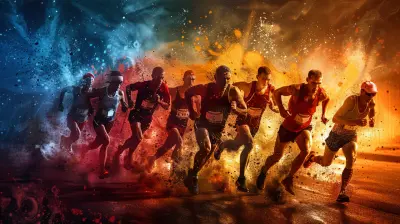The Importance of Hydration During Marathon Training
28 October 2025
Let’s be real—training for a marathon is brutal. Your legs are sore, your lungs are burning, and sometimes you question why you even signed up in the first place. But there's one thing that often flies under the radar, even though it's critically important: hydration. Yep, plain ol’ water (and sometimes electrolytes) can make or break your training. It can be the difference between you crushing that 26.2 miles or dragging yourself through the last few with jelly legs and a pounding headache.
So if you’re lacing up your sneakers and putting in those long miles, it’s time to talk about why hydration isn't just a good idea—it’s non-negotiable.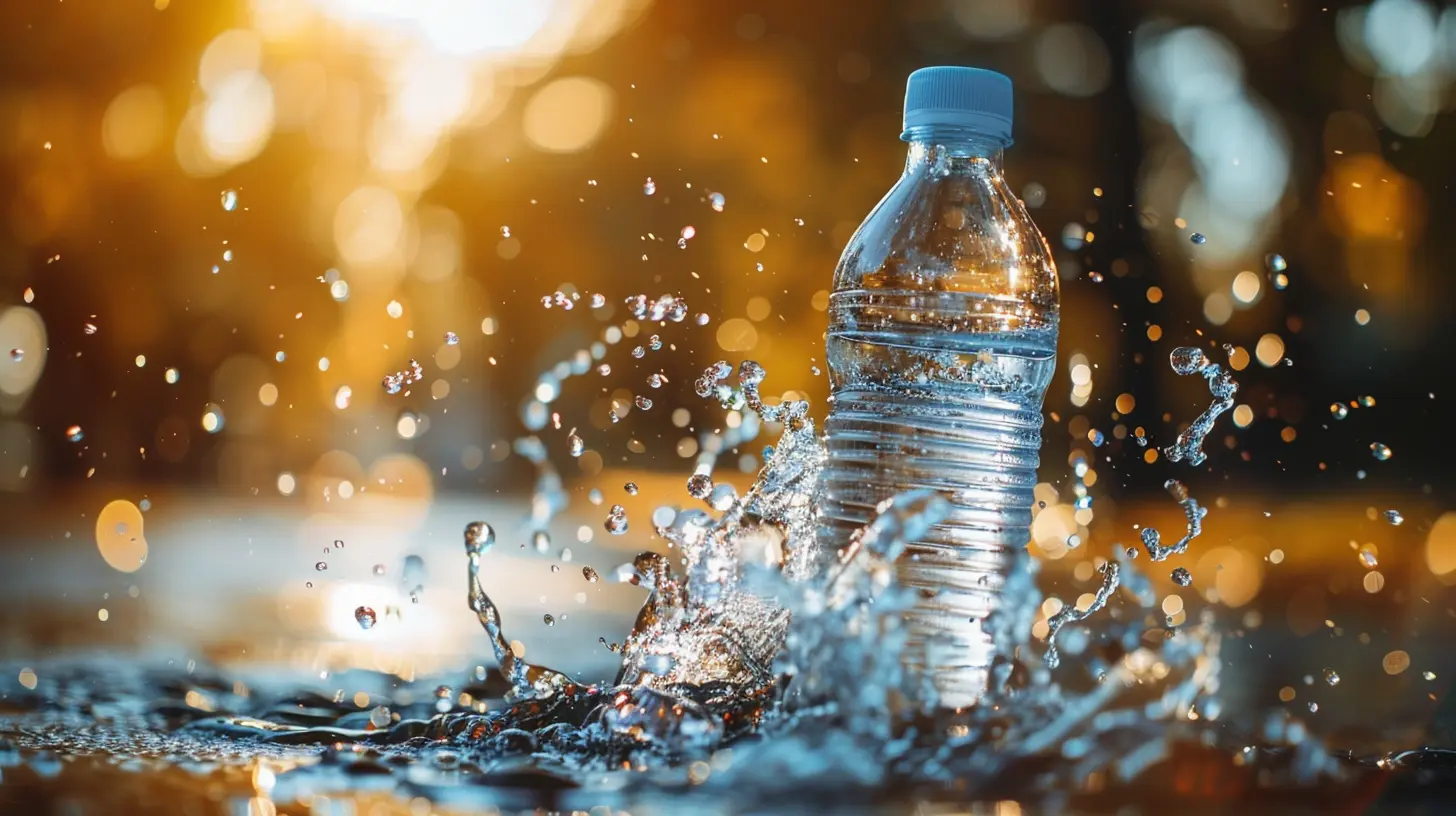
Why Hydration Matters So Much During Marathon Training
Training for a marathon isn't just about pushing your physical limits—it's about managing your body wisely. And hydration? It's the oil that keeps your engine running. Our bodies are about 60% water, and when you run long distances, you lose a lot of that through sweat. If you don’t replace it, your whole system starts to slow down. Ever tried running on an empty gas tank? That’s what dehydration feels like.Water Powers Your Performance
Think of water as your body’s performance fuel. It helps regulate your body temperature, lubricates your joints, and transports essential nutrients to give you energy. When you're sweating buckets on a 15-mile run, staying hydrated helps your body keep up without crashing.Without enough fluids, your muscles don’t work efficiently. You may feel sluggish, dizzy, or even nauseous. Your body simply can't perform optimally without proper hydration—and in marathon training, every little edge counts.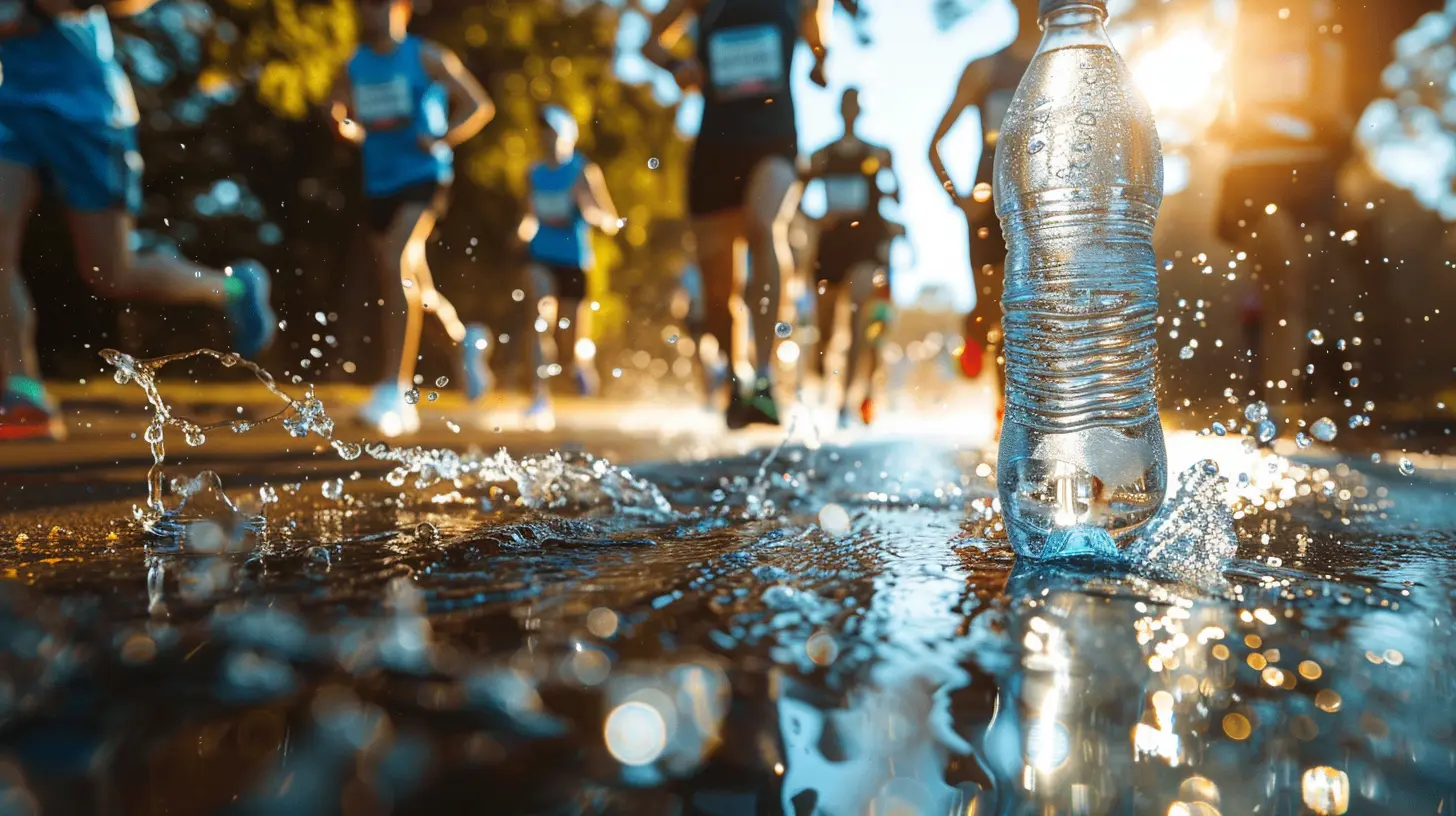
Signs You're Not Drinking Enough
You might think dehydration is something obvious that'll hit like a freight train. But nope, it’s usually more sneaky. It builds gradually until suddenly, you're hitting the wall way earlier than expected.Common Signs of Dehydration:
- Dry mouth or extreme thirst (kind of obvious, right?)- Headache
- Muscle cramps or tightness
- Fatigue or dizziness
- Dark yellow urine (yes, it matters—check it!)
- Slower recovery between runs
- Heart palpitations, especially during exertion
The key is to listen to your body. If you’re feeling "off" on a run, hydration might be the culprit.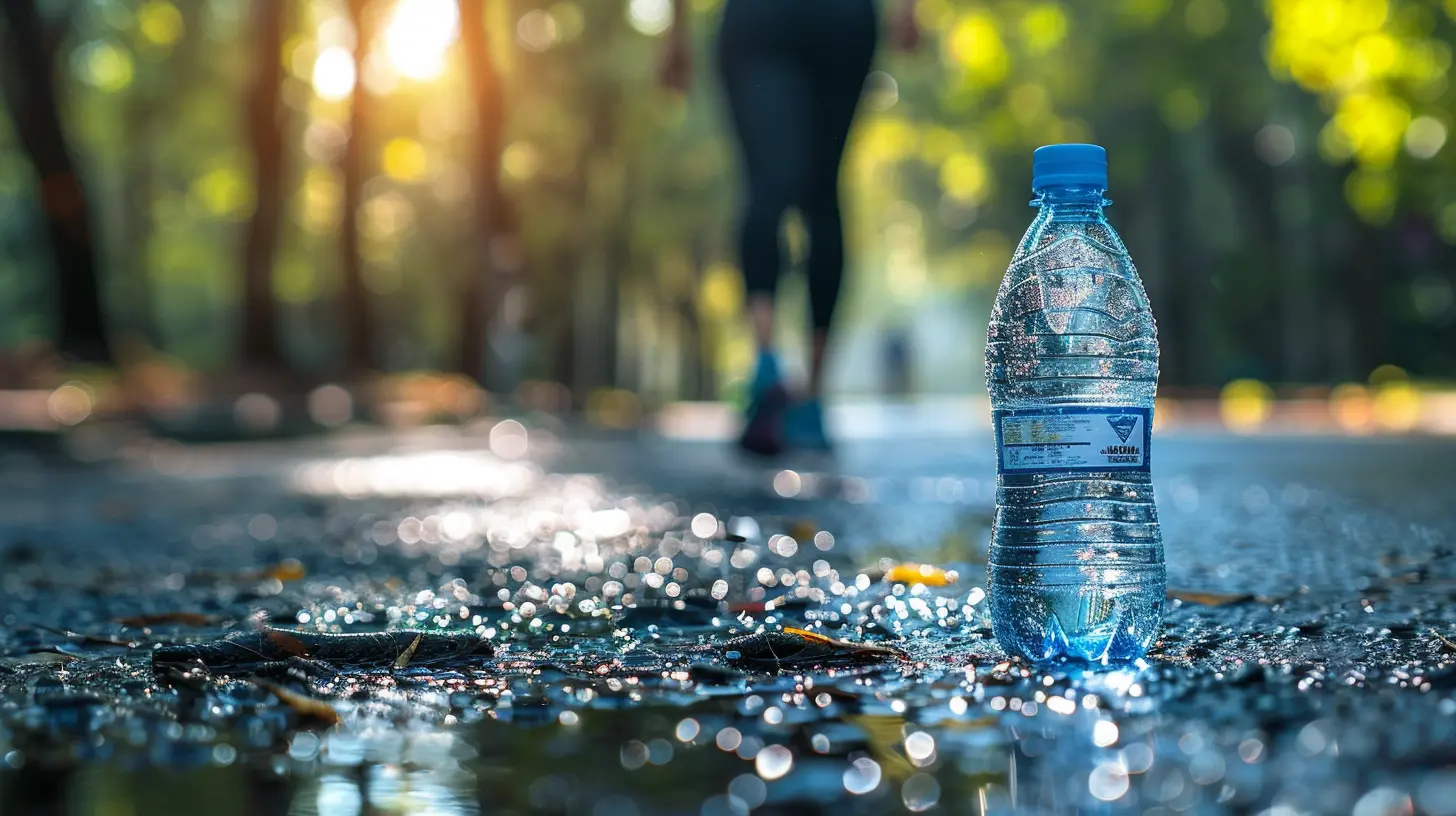
How Much Water Should You Be Drinking?
Here’s the million-dollar question, and honestly, the answer isn't the same for everyone. It depends on your size, how much you sweat, the weather, and your training intensity. But a general rule of thumb is to:Follow the “Hydration Routine”:
- Before the run: Start hydrating several hours ahead. Aim for 16–20 oz of water 2–3 hours before running.- During the run: For runs over an hour, you’ll need to replace lost fluids. A good goal is about 4–8 oz every 20 minutes.
- After the run: Rehydrate based on what you lost. A great indicator? Weigh yourself before and after. For every pound lost, drink 16–24 oz of fluid.
And remember, don’t overdo it either. Overhydration (or hyponatremia) can be just as dangerous as dehydration. Balance is key.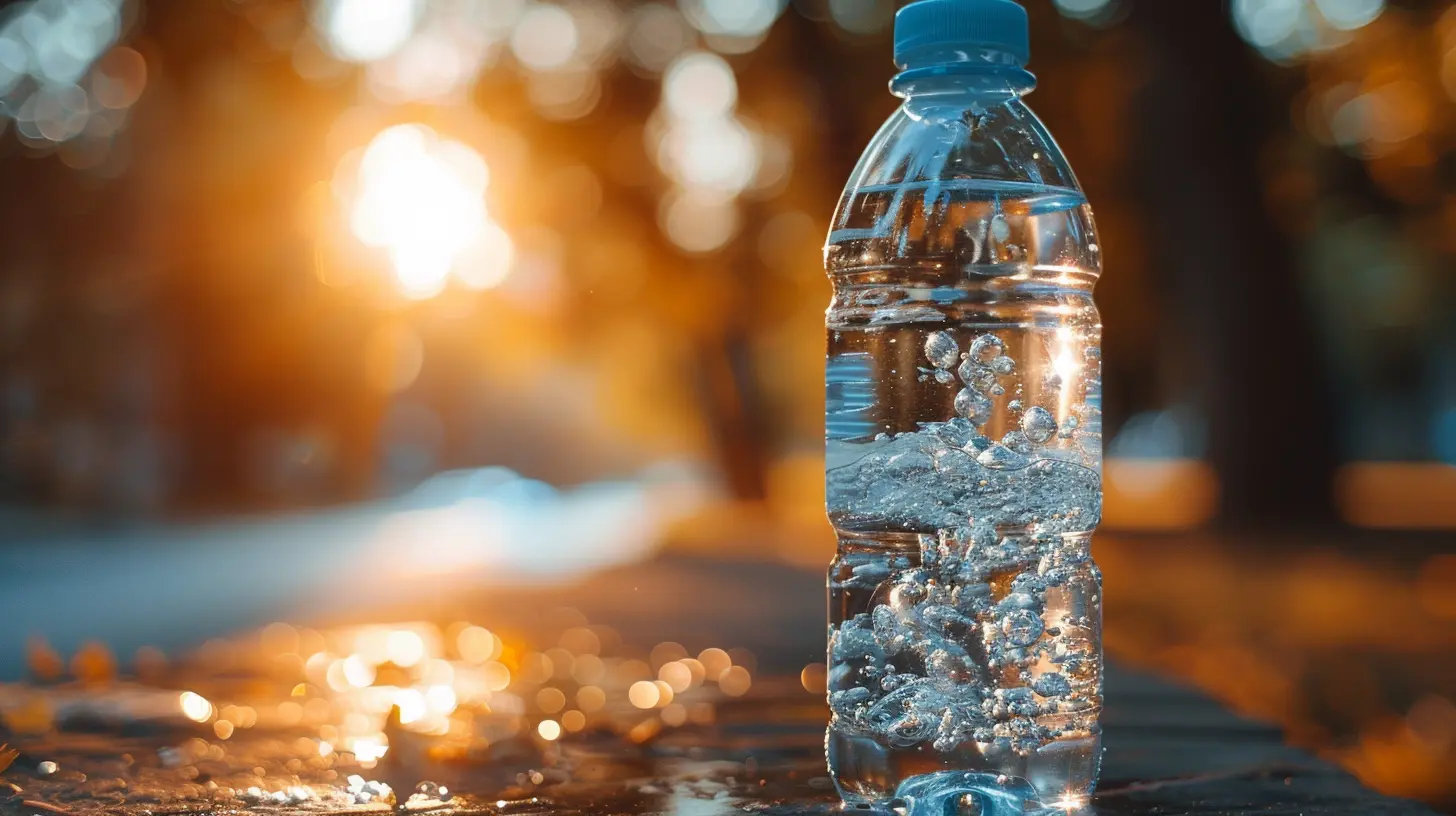
Electrolytes: The Secret Sauce
Water is crucial, but it’s not the whole story. When you sweat, you’re not just losing water—you’re also losing electrolytes like sodium, potassium, and magnesium. These little guys are critical for muscle function and hydration balance.When to Add Electrolytes
If your run is under an hour, water usually does the trick. But for longer sessions—or especially hot days—adding an electrolyte drink or supplement can make a world of difference. You won’t just feel better; you’ll perform better.Look for electrolyte tablets, powders, or drinks that replenish sodium and other minerals without overloading you with sugar.
Hydration Strategies for Long Runs
Training for a marathon means lots of long runs—sometimes two to three hours or more. You can’t ignore hydration during these. Here are some practical tips:1. Carry Water With You
Use a hydration belt, vest, or handheld bottle. Yes, it might feel clunky at first, but your performance matters more.2. Plan Your Route Around Water Stops
Running loops near a water fountain or stashing water bottles along your route can save you big time, especially on hot days.3. Use Sports Drinks Wisely
They can be helpful but don’t rely on them like candy. Check the sugar content and adjust according to your needs.4. Train Your Gut
Your stomach needs time to adjust to fluids mid-run. Practice drinking on the go during training so you’re ready on race day.How Weather Affects Hydration Needs
Hot and humid? You're going to sweat more. Cold and dry? You might not feel thirsty, but you're still losing fluids. Weather plays a big role in how much you need to hydrate.Train smart by adjusting your fluid intake based on the conditions. On hot days, you might even need to pre-load electrolytes. Cold weather? Make sure you’re still sipping, even if you don’t feel like it.
The Role of Nutrition in Hydration
Here’s something many runners overlook: food impacts hydration too. Water-rich foods like fruits and vegetables (think watermelon, cucumber, and oranges) help keep you hydrated. On the flip side, salty snacks or caffeinated drinks can work against you.Best Hydrating Foods for Runners:
- Watermelon- Oranges
- Cucumbers
- Strawberries
- Celery
- Yogurt
- Spinach
And pairing these with your regular meals is a smart way to stay on top of your hydration game without always carrying a bottle.
Prepping for Race Day
So you’ve trained hard, stayed hydrated, and now race day is around the corner. Don’t mess it up in the 24 hours before the big event.Race Day Hydration Check-List:
- Begin hydrating early the day before (not just the morning of).- Sip water gradually; don’t chug it all at once.
- Avoid alcohol or excessive caffeine—both can dehydrate you.
- Know the course: Are there water stations? What kind of drinks will be offered?
- Stick to what you’ve practiced—don’t try new drinks on race day. Trust what worked during training.
Final Thoughts: Hydrate Like a Champion
Training for a marathon isn’t just about your mileage and pace—it’s about treating your body like the high-performance machine it is. Hydration isn’t a bonus or an afterthought; it’s an essential part of your training plan.So don’t wait until you feel that parched heat in your throat or your calves cramp up at mile 20. Start now. Drink water, replenish those electrolytes, and train your body to hydrate smart. Your finish line moment will be that much sweeter when you're crossing it strong, not crawling.
And hey, if you’re going to run 26.2 miles—why not give yourself every possible advantage?
FAQs About Hydration While Marathon Training
Q: Can I rely on thirst alone to know when to drink?
A: Not always. Thirst is a delayed response to dehydration. Aim to hydrate regularly and monitor other signals like urine color or energy levels.Q: What’s the best sports drink for long runs?
A: Look for one with a good balance of electrolytes and carbs. Everyone’s body responds differently, so test a few during training to see what works for you.Q: Is it OK to drink coffee before a run?
A: Sure, in moderation. Just be aware that caffeine can have a diuretic effect, so balance it with plenty of water.all images in this post were generated using AI tools
Category:
MarathonAuthor:

Nelson Bryant
Discussion
rate this article
1 comments
Rosalyn Ramos
Staying hydrated is crucial for peak performance during marathon training! Every sip fuels your body and sharpens your focus. Remember, consistency is key—drink up, listen to your body, and you'll cross that finish line stronger than ever! Keep pushing!
November 5, 2025 at 4:00 AM

Nelson Bryant
Thank you! Hydration truly is vital for optimizing performance and recovery. Consistently listening to your body's needs will make a significant difference in training outcomes. Keep it up!
